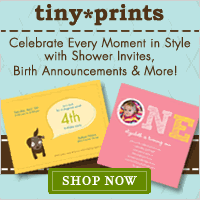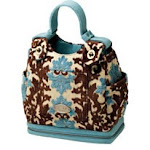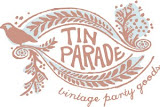I try my best at buying safe products and foods for my family. But more often than not, as soon as I'm standing in the aisles of the grocery store I go blank... Call it information overload or mommy brain but everything gets a little overwhelming. I
love that Designing Mom Erin has condensed information down for us in this piece, listing safe plastics, foods, sippy cups et all in one place. Feel free to forward this on to your other mommy friends!
........................................................................
by Designing Mom "Green" contributor
Erin
Last night, I was reading through news sites online and came across this article:
Female Infants Growing Breasts: Another Disaster from Hormones in Milk Production. This piece discusses how there are babies between four and fifteen months in China that are growing breasts because they have such high levels of estrogen circulating in their bodies from the formula they are given. You can read the article for the details, but I think its a good reminder that eating and living organically is not a left- or right- wing thing, an urban vs. rural thing or an upper class vs working class thing: it needs to be how we all live. For those of us with little ones at home, it becomes even more important because since their bodies are smaller and their immune systems less mature, smaller amounts of hormones and chemicals effect them.
The hormones that they discuss in the article are a type of “endocrine disruptor.” Our endocrine system is, very briefly, the parts of our bodies that make the hormones that regulate everything from our growth, appetite, and mood to our fertility, sleep and metabolism. An “endocrine disruptor” is a hormone or chemical that comes from outside of the body that disrupts the way our endocrine systems function. Some of the most commonly discussed endocrine disruptors include BPA, PBDEs, DDT, PCBs, pthalates, growth hormone (rBST/BGH) and dioxins. Here are some of the things that you can easily do to limit your exposure to these and other chemicals:
1. Buy organic food whenever possible. The higher on the food chain that you eat (in other words, the further away from plants, ie meat) the more important it is to eat it organically. Many endocrine disruptors are fat-soluble which means that as an animal consumes food that is made with certain chemicals or is given growth hormones, the chemicals are stored in the animal’s fat and we then consume those chemicals in greater concentration. (Remember the term “bio-accumulation” from biology class?)
Here is a list of the most important produce to buy organically.
2.
Throw out all of your plastic Tupperware. Be super careful with the plastics that come into contact with your food/mouth. BPA has been all over the news - the state of California passed a bill banning it from all food and drink containers. BPA is in hard #7 polycarbonate plastics and has been linked to obesity, cancer, infertility, etc. It crosses the placenta, which means that if you ingest it while pregnant, your developing fetus does too. Plastic is not stable, which means that its molecular composition changes - in the case of plastic, BPA and other plasticizers such as pthalates are released into your food. Extreme temperature changes such as freezing and microwaving increase the rate at which these chemicals leach into your food.
Certain plastics are better than others, but the easiest thing is to switch to glass or silicone to store your food in. When microwaving, put a paper towel or wax paper over the dish rather than plastic wrap.
For more info on BPA,
here is a recent article from Newsweek.
At my house, we use
Pyrex and
Mason jars to store food in the freezer/fridge. I froze my homemade baby food in silicone ice cube trays such as
these from Tovolo. For my son’s lunches, I send him with
Laptop Lunches, which is made of safe plastic. For baby bottles, I have used
Born Free (just 3 years ago when my son was a baby this was one of the only non-glass BPA free bottles,
now look) and
Adiri. We use
Earthlust and
Thermos for sippy cups. For teethers and pacifiers, we have bought Born Free,
Lifefactory and
Green Sprouts. (Bottles shown from left to right: Born Free, Lifefactory, Green to Grow, Think Baby, Earthlust, Thermos)
3. Don’t Buy Teflon pans. Teflon, when heated to extremely high temperatures (over 600 degrees, a range that people don’t really cook at), can turn into a gas that can kill birds and make people sick. It has also been said that Teflon can be linked to
infertility and
cancer. I think the truth of the matter is that cooking with Teflon is probably not that bad for us since the PFOAs linked to cancer and infertility don’t escape the pan after the manufacturing phase is finished. Teflon becomes a health risk when it builds in the environment during manufacturing and enters our food and water sources. Just to be careful, never cook with Teflon pans that has scratches or dents. To be SUPER careful, use an alternative nonstick such as cast iron,
Green Pan (one line of Green Pan can be found at Target),
Scan Pan CTX or
Cusinart’s GreenGourmet line. By buying pans without PFOAs, we are sending a message that we do not want these chemicals in our environments and our bodies.
4. Eat fresh food - avoid canned foods. Back to BPA: it is in the lining of food cans. The thing about BPA is that it it great at keeping the food, especially acidic foods like tomatoes, from corroding the can and many food companies say they haven’t found an adequate alternative. The best thing is to eat fresh foods, food stored in glass or food containers with labels that state “BPA free.”
For more information about a bill trying to end BPA in food cans,
click here.
5. Think about how you clean your food and kitchen. Many of the things that we use to clean our food, our kitchen and the rest of our houses actually bring chemicals in that aren’t very good for us. Chlorine bleach, when it gets warm, releases dioxins which are carcinogenic. An easy alternative in hydrogen peroxide. Many of the fragrances and other ingredients put in cleaners can aggravate asthma, especially when sprayed. There are now plenty of companies that offer “green” alternatives, the most common being
Seventh Generation,
Biokleen, and
Ecover. I am a big fan of Biokleen’s Produce Wash and Seventh Generation’s disinfecting line. Of course, there are many people that swear that the only things you need to clean your house are lemons, vinegar, baking soda, castile soap and borax.
Here’s a link to an old Real Simple article about All-Natural Cleaning Solutions.
These are just some tips related to foods and eating. I know this is a design-related blog, but we are all moms first, and as parents, we want to take care of our families and ourselves. Luckily, there are many alternatives now, at all price points, that are attractive and healthy.
For more information:
Healthy Child Healthy World
Avoid These ‘Dirty Dozen’ Toxic Chemicals
NYTimes: Cancer From the Kitchen?
NYTimes: New Alarm Bells About Chemicals and Cancer
NYTimes: Chemicals in Our Food, Our Bodies
Pesticides, ADHD, and Personal Health: Why We Can't Always Control What Happens to Our Brains and Bodies
Dr.Greene.com














































































